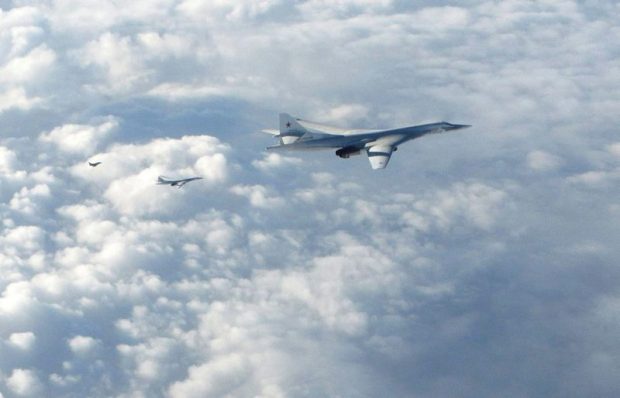Two Russian bombers intercepted off the Belgian and British coasts (V2)
(B2) Two supersonic Russian bombers, of the Tupolev TU-160 "Blackjack" type, caused several European fighter jets to take off, in turn, on Monday (January 15).
An order from the CAOC... the Belgian F-16s take off
These two planes were flying in international airspace in the North Sea, off the Dutch coast, without having reported beforehand (as required by the procedure). They " did not have a flight plan and were flying in areas where all aircraft must be identifiable. So they broke international rules underlined Belgian Defense Minister Steven Vandeput (*). The CAOC (Combined Air Operations Centre), the coordination center for NATO air operations, based in Uedem (Germany), then gave the order to intercept them. The Russian bombers were first intercepted by Belgian F-16s north of the Netherlands (1). The F-16s have took off at 11:21 am from Florennes base ". Half an hour later, exactly " at 11:51 p.m., the pilots had established a first visual contact at an altitude of 9000 meters with the Russian aircraft we explain on the Belgian side. " The Belgian pilots did not see any armament. » (*)
... before a relay by British hunting
They were then escorted until two British Typhoons, which had taken off from the Royal Air Force base at Lossiemouth, took over. They were evolving without having exchanged with air traffic control. What made them dangerous for all other airlines. [But to] at no time did Russian bombers enter UK sovereign airspace we confirm on the British side. The two Tupolevs were then escorted north, out of the British area of interest. "The threats facing our country are intensifying and we will not hesitate to defend our skies against acts of aggression" Defense Minister Gavin Williamson said in a statement.
(NGV)
(1) The Belgian and Dutch F-16s take turns providing the Quick Reaction Alert (QRA) for the three Benelux countries, permanently ready to take off in order to react urgently to any aerial incident. The combat command centers in Glons and Nieuw-Milligen monitor the Belgo-Luxembourg and Dutch sectors respectively day and night.
(*) Updated on January 17 with the intervention of Steven Vandeput before the Chamber of Deputies.

